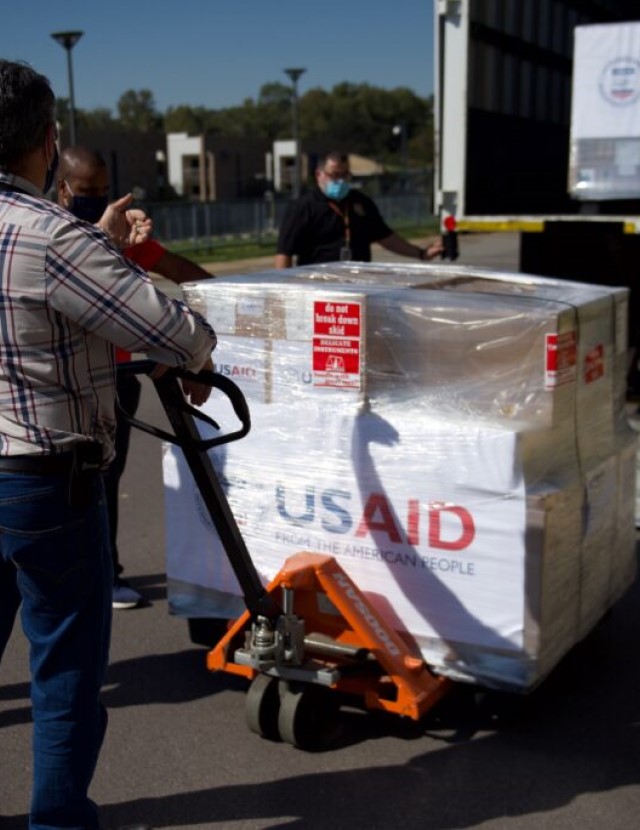Assessing and Expanding Ventilator Access in more than 40 Countries
Highlights

Beginning in 2020, STAR supported COVID-19 response in 40+ USAID recipient countries, providing global technical assistance focused on ventilator deployment, critical care capacity assessments, and critical care education.
10k ventilators distributed to 40 low and middle income countries by USAID partners
450 facilities assessed for mechanical ventilation capacity in 40 countries
-
Focus Areas
Communicable Disease Prevention, Global Health -
Expertise
Technical Assistance -
Strategic Initiatives
COVID-19
Beginning in 2020, PHI’s Sustaining Technical and Analytic Resources (STAR) program engaged with sub-partner UCSF to support USAID recipient countries’ responses to the COVID-19 pandemic, providing global technical assistance focused on ventilator deployment, critical care capacity assessments, and critical care education. In partnership with U.S. academic institutions and the World Federation of Societies of Anaesthesiologists (WFSA), the STAR/UCSF team played an integral role to provide essential, expert, global technical assistance for the U.S. government donation of over 10,000 ventilators to more than 40 low- and middle-income countries (LMIC) around the world.
Starting in May 2020, STAR/UCSF partnered with WFSA to create a 15-member critical care technical advisory group (TAG) of global health experts, who helped lead COVID-19 response planning and provide clinical care in a wide variety of contexts. STAR/UCSF also developed a detailed Facility-Level Assessment (FLA) tool to assess facility-level capacity to care for critically ill patients who require mechanical ventilation. Approximately 450 facility-level assessments were completed in 40 countries. With STAR/UCSF TAG support, multiple USAID implementing partners have used country-specific data from the FLAs to develop locally relevant interventions to train providers to safely and effectively use mechanical ventilators with the most severe COVID-19 patients. STAR/UCSF has also developed data analytic tools that are being used by USAID and others to analyze multi-country FLA data at a global level.
Work With Us
You change the world. We do the rest. Explore fiscal sponsorship at PHI.
Support Us
Together, we can accelerate our response to public health’s most critical issues.
Find Employment
Begin your career at the Public Health Institute.
